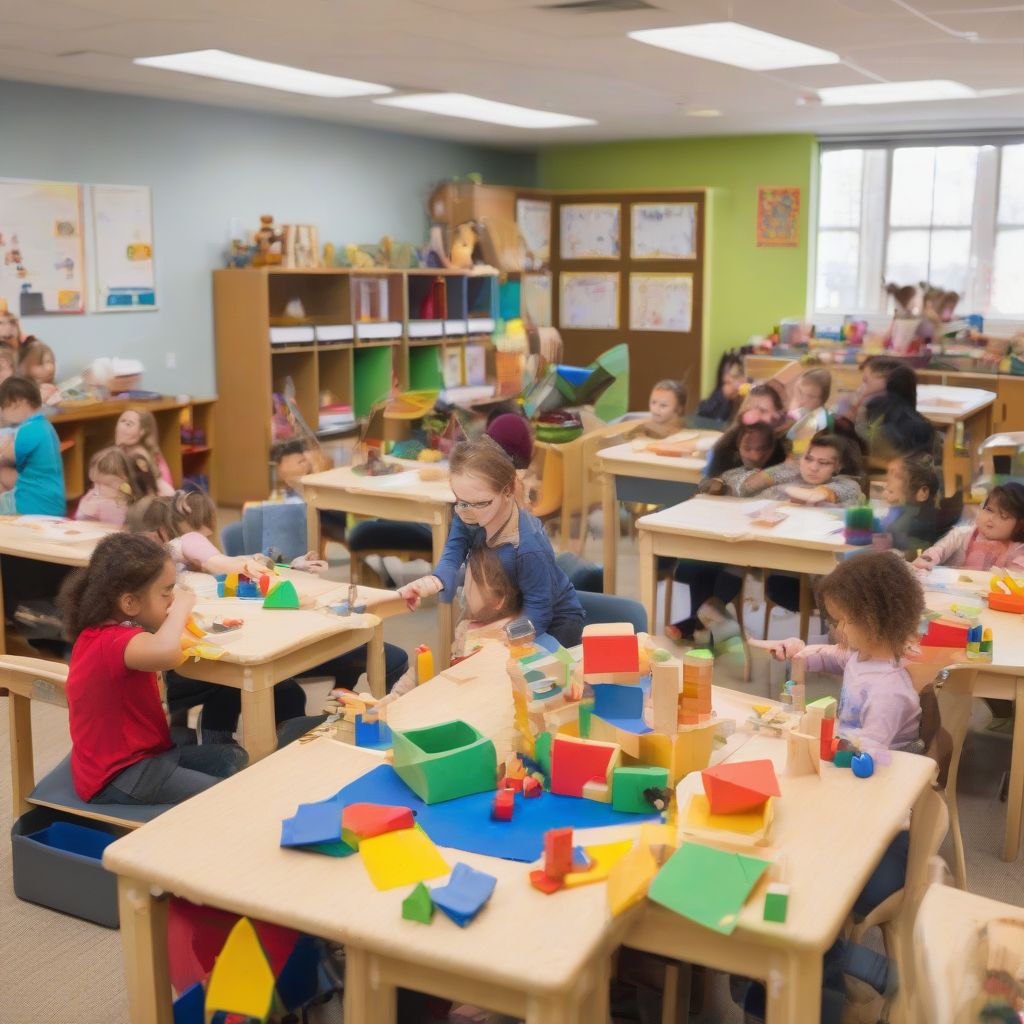“Give me a child until he is seven and I will show you the man.” This ancient proverb highlights a profound truth: the experiences and learning that occur during early childhood lay the foundation for a lifetime of growth and development. Early childhood education, encompassing the period from birth to eight years old, plays a pivotal role in shaping a child’s cognitive, social, emotional, and physical well-being. It’s not just about preparing for kindergarten; it’s about unlocking a child’s full potential and setting them on a path towards a brighter future.
The Building Blocks of Success: Why Early Childhood Education Matters
The early years are a period of rapid brain development. During this critical window, neural connections are formed at an astounding rate, laying the groundwork for all future learning. High-quality early childhood education provides young children with:
1. Cognitive Development:
- Language Skills: Through songs, rhymes, storytelling, and conversations, children develop crucial language and communication skills, expanding their vocabulary and comprehension.
- Cognitive Abilities: Early childhood education fosters critical thinking, problem-solving, and decision-making skills through play-based learning, puzzles, and age-appropriate challenges.
- Pre-Literacy and Numeracy: Activities like reading aloud, alphabet games, and counting exercises build a strong foundation for reading, writing, and mathematical thinking.
2. Social-Emotional Growth:
- Emotional Regulation: Early childhood settings provide a safe and nurturing environment where children learn to understand and manage their emotions, developing self-regulation skills essential for social interactions.
- Social Skills: Interaction with peers and caring adults helps children develop empathy, cooperation, conflict resolution, and communication skills, fostering healthy relationships.
- Self-Esteem and Confidence: Through positive reinforcement and opportunities for success, children build self-esteem and confidence in their abilities.
3. Physical Development:
- Fine and Gross Motor Skills: Activities like drawing, cutting, building blocks, running, and jumping enhance fine and gross motor skills, crucial for physical coordination and everyday tasks.
- Healthy Habits: Early childhood education programs often incorporate nutrition and physical activity into their curriculum, promoting healthy habits from a young age.
Long-Term Benefits: Reaping the Rewards of Early Investment
The impact of quality early childhood education extends far beyond the early years, leading to significant long-term advantages:
- Academic Success: Research consistently demonstrates that children who attend high-quality early childhood programs are better prepared for school, perform better academically, and are more likely to graduate high school and pursue higher education.
- Increased Earning Potential: Early childhood education has been linked to increased earning potential later in life. Individuals with a strong educational foundation are more likely to secure higher-paying jobs.
- Reduced Crime Rates: Studies have shown a correlation between early childhood education and reduced crime rates. Children who receive quality early education are less likely to engage in criminal activity later on.
- Healthier Lifestyles: Early childhood education can contribute to healthier lifestyles by instilling good nutrition and exercise habits early on, potentially reducing the risk of chronic diseases later in life.
- Stronger Communities: Investing in early childhood education strengthens communities as a whole by creating a more educated and productive workforce and reducing social costs associated with crime and poverty.
 Early Childhood Classroom
Early Childhood Classroom
Choosing the Right Path: Types of Early Childhood Education Programs
Navigating the world of early childhood education can feel overwhelming. Here’s a brief overview of some common program types:
- Preschool: Typically designed for children ages 3-4, preschool focuses on social-emotional development, pre-literacy skills, and creative expression through play-based learning.
- Daycare: Daycare centers provide care and supervision for infants and young children, often incorporating some educational activities.
- Head Start and Early Head Start: These federally funded programs serve low-income families, providing comprehensive early childhood education, health, and nutrition services.
- Montessori: The Montessori method emphasizes hands-on learning, self-directed exploration, and individualized pacing in a specially prepared environment.
- Waldorf: Waldorf education prioritizes creativity, imagination, and practical skills through arts, crafts, music, and movement.
A Shared Responsibility: Supporting Early Childhood Development
Creating a nurturing and stimulating environment for young children is a collective effort. Here’s how parents, educators, and communities can work together:
- Engage in Meaningful Interactions: Talk, read, sing, and play with children regularly. These interactions are essential for language development, cognitive growth, and bonding.
- Provide Stimulating Toys and Activities: Choose toys that encourage exploration, creativity, problem-solving, and fine and gross motor skills.
- Create a Literacy-Rich Environment: Surround children with books, read aloud daily, and visit the library often to foster a love of reading.
- Advocate for Quality Early Childhood Education: Support policies and programs that expand access to high-quality, affordable early childhood education for all children.
Conclusion: Investing in Our Future, One Child at a Time
Early childhood education is not merely a societal benefit; it’s a fundamental human right. It’s an investment in our children, our communities, and the future of our world. By providing every child with a strong start, we empower them to reach their full potential and create a brighter tomorrow. Let’s work together to make quality early childhood education a reality for all children.
What are your thoughts on the importance of early childhood education? Share your experiences and insights in the comments below!
[amazon bestseller=”early childhood education books”]
